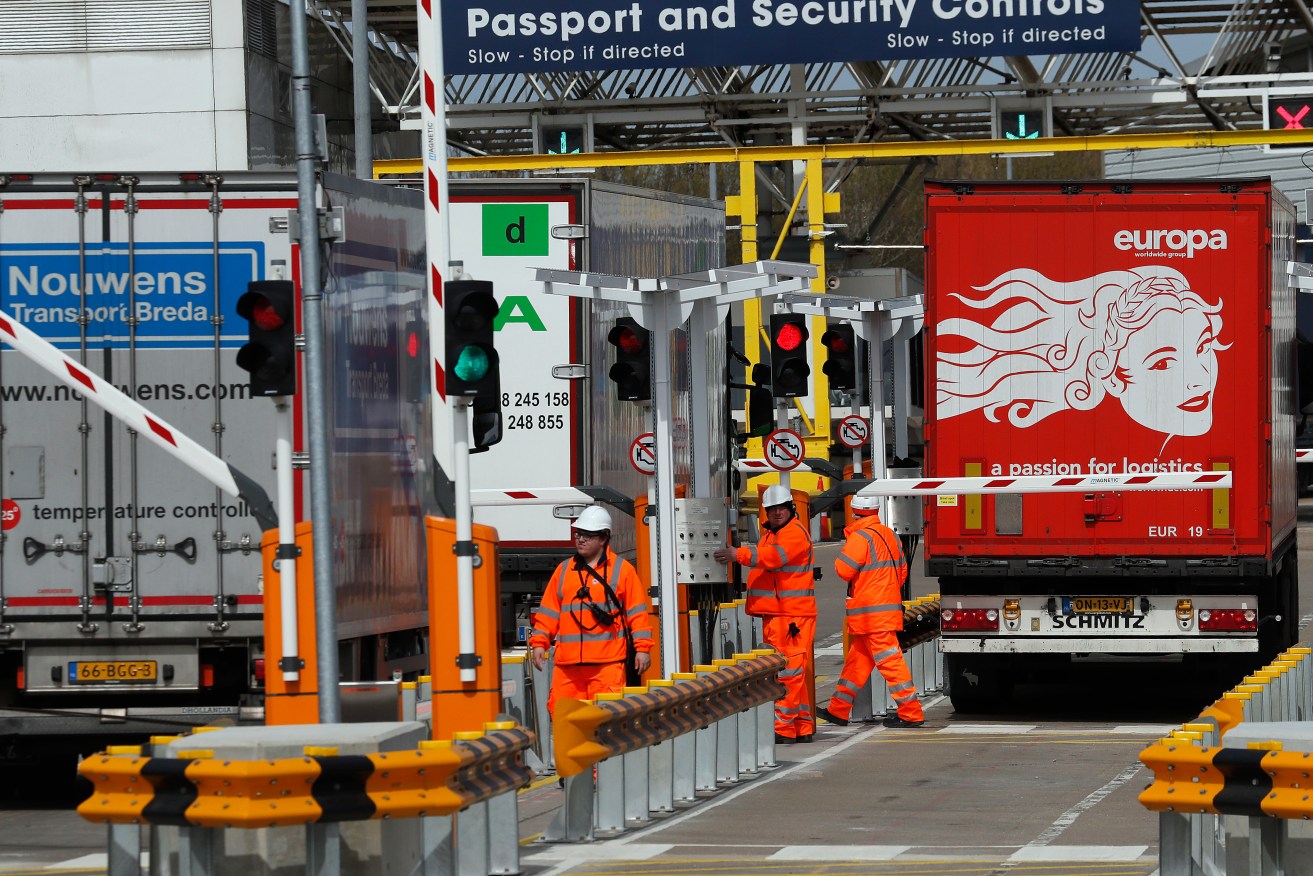UK headed for economic downturn over Brexit concerns: survey
Britain’s economy looks likely to shrink over the coming months, after Brexit worries caused the dominant services sector to contract for the first time in nearly three years, a survey shows.

Uncertainty and indecision about Brexit is starting to hit the UK economy, a survey shows. Photo: AP/Frank Augstein
The IHS Markit/CIPS Purchasing Managers’ Index (PMI), a survey of services ranging from giant banks to high-street hairdressers, tumbled to 48.9 in March from 51.3 in February, weaker than all forecasts in a Reuters poll of economists.
The PMI, a closely watched barometer of the economy’s health, is now below 50 and in contractionary territory for the first time since July 2016, immediately after Britons voted to leave the European Union.
“Amid all the noise in Westminster, the latest Markit/CIPS PMI makes it clear the economy is being hit hard,” ING economist James Smith said in a note.
Britain’s economy has been sluggish since the 2016 Brexit referendum and saw its weakest expansion in six years in 2018, even though unemployment fell to its lowest in more than 40 years.
The slowdown in the global economy has also weighed on growth. But until now few surveys have pointed to an outright contraction in the world’s fifth-largest economy.
Britain had been due to leave the EU on March 29, but parliament repeatedly opposed the Brexit deal Prime Minister Theresa May had negotiated with Brussels.
“There were widespread reports that domestic political uncertainty had constrained demand in March, with clients hoping for clarity about Brexit outcomes before committing to new projects,” IHS Markit said.
Late on Tuesday, May said she would seek another Brexit delay to try to reach an agreement with Jeremy Corbyn, the opposition Labour Party leader, a last-ditch gambit to break an impasse over Britain’s departure that enraged many in her party.
Sterling dipped after the PMI release, to $US1.3156 compared with $US1.3175 beforehand, but it quickly recouped losses as traders focused on the outcome of the talks between May and Corbyn.
A broader PMI released this week, including manufacturing and construction data, also fell to its lowest since July 2016. It escaped outright contraction only because firms bought more raw materials to prepare for a potentially disorderly Brexit.
“A stalling of the economy in the first quarter will … likely turn into a downturn in the second quarter unless demand revives suddenly, which given the recent escalation of Brexit uncertainty, seems highly improbable,” IHS Markit said.
But some economists cautioned that past PMIs had tended to be too downbeat when economic uncertainty has been high.
“GDP growth probably is holding up a little better than the PMIs imply,” said Samuel Tombs at Pantheon Macroeconomics.
Unlike in 2016, when demand rebounded rapidly after the initial shock of the referendum result, British businesses have now reported falling orders for the past three months, the longest such run since the depths of a recession in 2009.
-AAP
Want to comment?
Send us an email, making it clear which story you’re commenting on and including your full name (required for publication) and phone number (only for verification purposes). Please put “Reader views” in the subject.
We’ll publish the best comments in a regular “Reader Views” post. Your comments can be brief, or we can accept up to 350 words, or thereabouts.
InDaily has changed the way we receive comments. Go here for an explanation.




